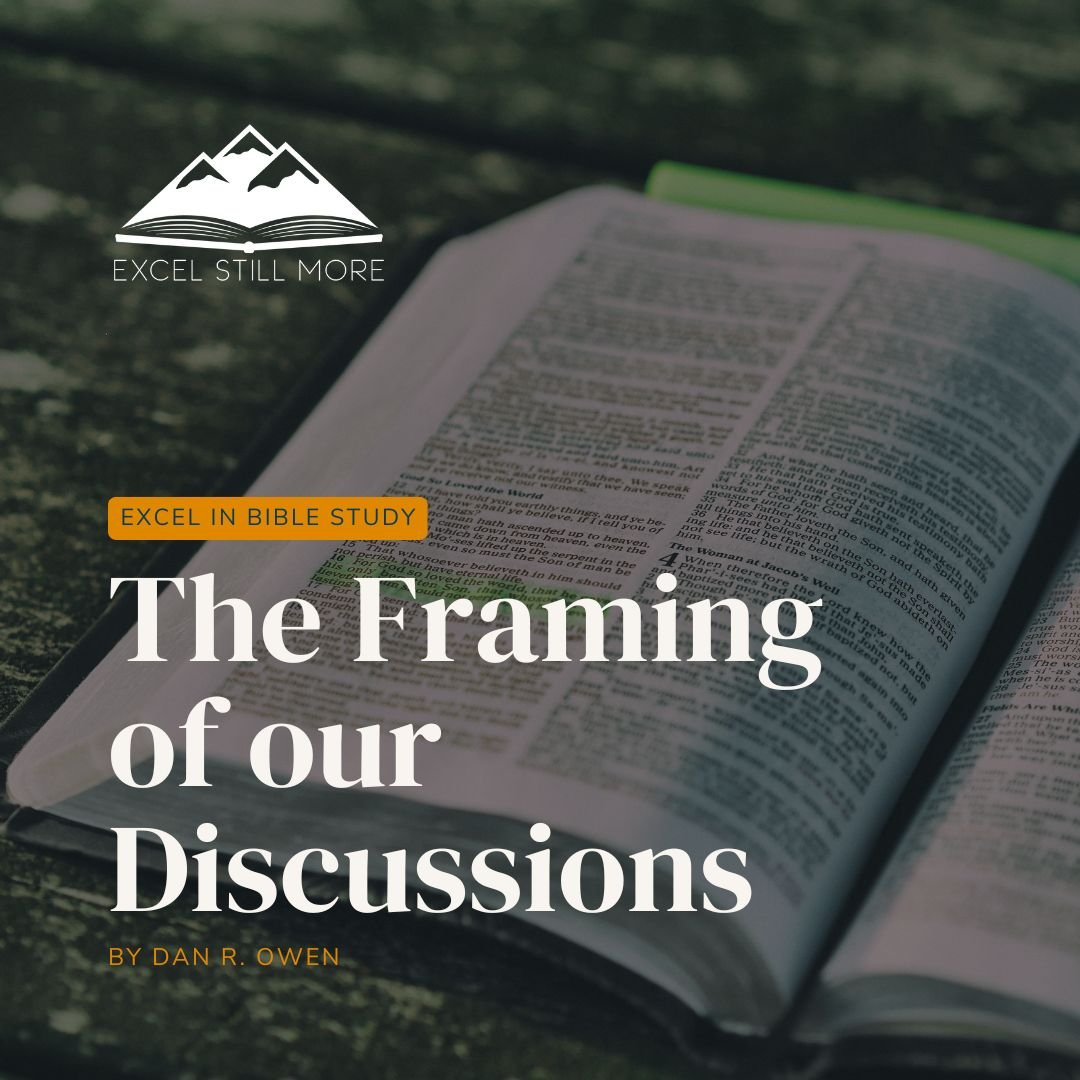As one who seeks to learn whatever God’s word teaches, it is frustrating to me that so many discussions among brothers in Christ are framed as reactions to some unbiblical teaching or to safeguard against censure. We cannot seem to talk about grace without framing the discussion to make sure we avoid Calvinism. We cannot seem to discuss the role of women without framing the discussion to center on what women cannot do instead of what women are empowered by Scripture to do. We have difficulty talking about the work of the Holy Spirit in our lives without making pains to avoid any similarity to Pentecostalism or Calvinistic ideas about divine illumination. We have difficulty having discussions about biblical leadership and how it works because we are so eager to make sure we maintain the idea of elder authority. The result of this pre-framing is that we are sometimes fettered and hindered from going wherever Scripture, uncorrupted by modern ideas, would take us. How can we freely engage with God’s word and one another if we are always worried about whom we might offend, whose financial support we might lose, or whose lectureship invitations we might forfeit?
This framing of our discussions is assisted by a vocabulary we have developed to safeguard ourselves. Word’s like PROVIDENCE guard us from talking about how God directly operates in the natural world. We use categories like NON-MIRACULOUS to keep us from being associated with Charismatics, though the Bible never mentions such a category in reference to God’s work. We will read passages about how God works in people, but are quick to say that he does so in natural, providential ways. We speak of DIRECT OPERATION of the Holy Spirit as if the Bible distinguishes what the Spirit does as either DIRECT or IN-DIRECT. We often define words like faith in such a way as to make them mean something less that what Paul or John may mean. We talk of WORKS in such a way as to adopt the meaning of obedience, when Paul would not typically use the word that way at all. These are mechanisms to frame discussions in a way that would argue against Calvinism instead of trying to see contextually what Paul is really trying to say in books like Romans and Galatians. We freely talk about the “body of Christ” as the church but ignore the fact that Paul often uses the “body of Christ” illustration to talk about the spiritual gifts given to each member of the body for the work of ministry. How can we downplay the reality of spiritual gifts in Pauline theology, while co-opting the body illustration simply to prove that there is one body, one church, over whom Christ is head? We frame discussions of the afterlife in such a way as to avoid terminology like New Heavens, New Earth, New Jerusalem so that we will not be associated with heretical groups who often use this particular biblical terminology. All of this means that our thought processes are being inhibited by these self-imposed guard rails which I call “framing.”
Another reason for this constant pre-framing of discussions seems to be our intolerance for ambiguity in Scripture. The Bible simply does not explain or clarify everything. God did not reveal everything about every matter. To be honest, we must sometimes simply say that Scripture does not explain any more on certain matters. Ambiguity makes people uncomfortable. We know that there were people called DIAKONOI in ancient churches, who served in various kinds of ministries, but we simply don’t know what all of those ministries involved. We do not fully understand what the ministry of the fully supported widows entailed in 1 Timothy 5. We know from numerous passages that the Holy Spirit dwells in Christians, but Scripture does not explain the “how” of that indwelling. We know that “God works in you to will and to work for his good pleasure” but God does not explain all the ways in which God might do that. We are told that God answers prayers, and we have biblical examples of some ways in which God does it, but we usually just trust that he does it, and we will never know how he does it. We are told clearly that some spiritual gifts were to be done away, but we are not given a complete list of every gift that may not be necessary for us anymore. Being dedicated to Scripture and its proper, contextual interpretation is a noble calling. It is also a precarious calling if one seeks to be honest. If the Bible is silent on a matter, perhaps we should do as 1 Corinthians 4:6 says and not “go beyond the things that are written so that none of you will be puffed up on behalf of one person and against another.”
Having said all of this, my desire is that we give purely biblical reasons for the things we believe and practice, and refrain from all of the non-biblical framing and vocabulary that inhibits the unfettered seeking of truth. Let us not judge or despise one another, but let us openly and honestly seek the truth of God’s word and live by it!

